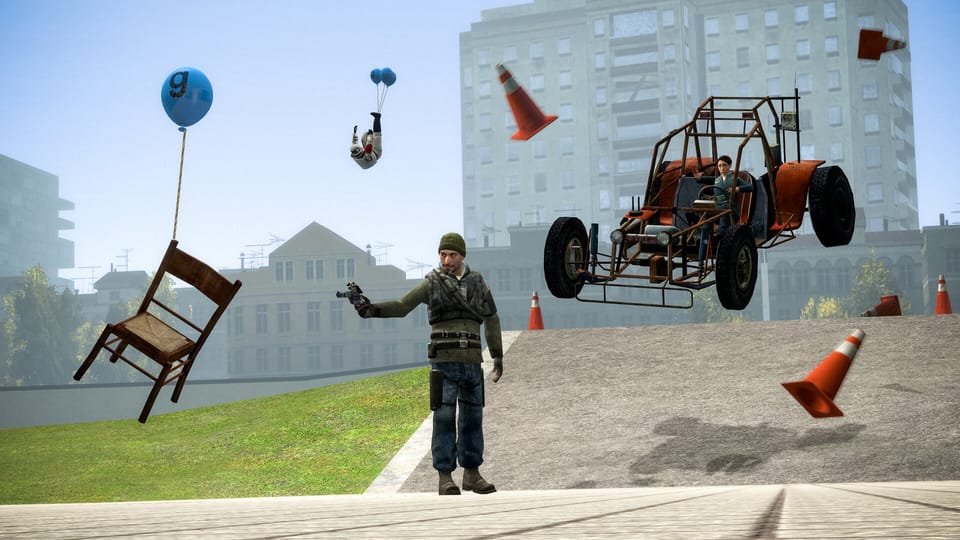Thoughts on "UGC platforms"

There's been lots of investment in UGC (user generated content) this past few years, largely motivated by the tens of billions in revenue Roblox has generated.

Epic seems to have been the most successful Roblox follower, with Fortnight Creative. They were able to bring both the Fortnite player base, and a mature game engine to the platform.

Most of the other attempts to create new UGC game platforms have struggled to hit critical mass, despite tens or hundreds of millions in investment.
The Chicken And Egg Problem
There's a really HUGE "chicken and egg" problem here, where you need great games for players to get onboard, and developers need potential customers to justify the risk in investing in a new platform.
So, startups spend tens of millions essentially paying for pros to make games to try and jumpstart the content supply.
But since these "game engines" are years behind the leaders, the games end up lacking, and so players don't show up, and startups shut down, or pivot.
(Manticore, mentioned above apparently pivoted out of "it's Roblox for adults" into NFTs. It turns out making a game engine and building an ecosystem on top of it is hard, even if you have $100m!)
What's The Fundamental Unit of Value?

If you look a bit closer here - platforms can only thrive if there's a steady supply of producers and consumers, trading what platform designers call fundamental units of value with each other.
The fundamental unit of value on Instagram is a photo post. It's fairly low value, but incredibly easy to create. In aggregate, these posts provide enough value for users to stick around and scroll.
The fundamental unit of value on a game platform like Steam is a game. Games are difficult, expensive, and slow to develop.
Roblox is essentially a game engine and platform that trades in games - but the simplest "game" on Roblox is an "obby" - a level with a start and an end, with a bit of 3D platforming in between.
Roblox built an ecosystem over 20 years, starting small, cultivating a community of creators, and allowing them to make "games" that had some built in value provided by Roblox's live multiplayer backend. It worked well. It's hard to copy.
Where On The Player->Developer Funnel Are You Aiming?
The model I see being attempted, over and over again, is to make the creation of "games" more accessible, and then to try and build platforms on those games.
Basically, new platforms are aiming near the bottom of this funnel:

At this end of the funnel, you need someone to make "games" to provide value to the platform.
But at this end of the funnel, new "UGC game platforms" are essentially competing with Unity, Godot, and Unreal, which are already making game development steadily more accessible, and which allow you to ship anywhere.
It's not impossible, but it's really hard to make a dent.
Other platforms promise creators the ability to make games by providing them with simple templates that they can modify. Struckd Studio lets players start with simple tools and then export them to Unity if they want to "graduate" to something more complex.

It's hard to say if this will work or not. The most popular games created on Struckd so far mostly look like slightly modified versions of the templates the tool provides.
AI To The Rescue?
Another attempt I see to solve this problem of content supply is to let players generate games with AI prompts. The attempts I've seen so far don't look very promising, and everything I've seen anecdotally seems to indicate that what players want is to play things that have been lovingly crafted by skilled humans.
Maybe AI game creation is the future, but it's certainly not the present.
Is There Another Way?

What if, rather than asking professional creators to make games - you allow creative players to make smaller pieces of content within a tighter framework, and then make that creation fun, easy, and rewarding?

This is actually model that has been successfully deployed for decades, across hundreds of individual games.
Mario Maker has more than 75 million player-made levels.
Geometry Dash has 110 million levels - with 30k players on steam right now despite not having official updates for months.
Track Mania has a whole ecosystem of track creators and influencers who play them. My friend Pat has been making Trackmania tracks for 25 years.
Happy Wheels is a physics based 2D platformer launched in 2010 on the web, and 15 years later, it still has hundreds of new levels submitted every week.
Garry's Mod has millions of creations, ranging from memes to entire game modes with tens of thousands of active players.
Games-As-Platforms

Games that truly allow players to be creative and support that creativity by allowing them to share with a community, essentially become their own miniature platforms , where the "unit of value" that's traded between consumers and creators is a carefully constrained piece of content for that specific game.
The role of the game developer on these "games as platforms" is to setup the conditions for players to create things, to support those creators, and to enable other players to find and enjoy these creations.
Designing, building, and maintaining that infrastructure and UX can be a big, risky undertaking. Some platforms like Steam workshop solve some part of those challenges for you. (mod.IO is attempting to compete with Workshop, but in a cross-platform way)
What Are The Ingredients of a "Game as a Platform?"
Here are some thoughts on what seems to work for these games:
- The game foundation is solid, and "specific".
You need to do the work of building a mechanical, thematic, and aesthetic foundation that enables great gameplay and establishes a specific genre audience. This is where you need professional game developers doing their best work.
Trackmania has an amazing deterministic physics engine that allows for replays and "just hold the gas" levels. Mario Maker gives players the power of the Mario platforming engine. Garry's Mod gives players a ton of source engine content to play with, and frames the whole platform as comedy.
If you can't make amazing content with the foundational tools, players probably won't either. And if all they see is a "game engine", then you're just competing with Unity and Unreal again. - They make entry level creation easy
Let players make something cool in less than a minute. Make it fun to create, and make it easy to discover the tools so that every player knows creation is an option. In the best case scenario, the creation tools are built into the game itself, and don't require reading lengthy tutorials to get started. - They enable motivated creators to do amazing things
Minecraft's redstone is a great example of this. Players have created entire
computers within the game using it. If your game has a level editor, how much can players customize it and make things you might not expect? You don't need to implement a full-blown programming framework - but if you provide it, players will use it. - They make it easy to discover good content
Ideally, this discovery happens in the game itself. There is a problem of abundance if you hit critical mass, and you'll need to figure out how to show players the best content among a sea of creations. Steam workshop does a lot of this work for you, if you direct players to it. Simply letting players rate content and then sorting by ratings is a decent start. - They make creators feel rewarded.
The best "games as platforms" have social features that allow you to follow your favorite creators, and to 'like' and comment on their creations. For a lot of creators, simply knowing people are enjoying their art is all they need to keep creating.
What I'm Working On
I believe there's an opportunity here to take the "game as a platform" model and make it available to more games. I'll have more to say about that soon!
If this is an area you're interested in, get in touch.
Member discussion